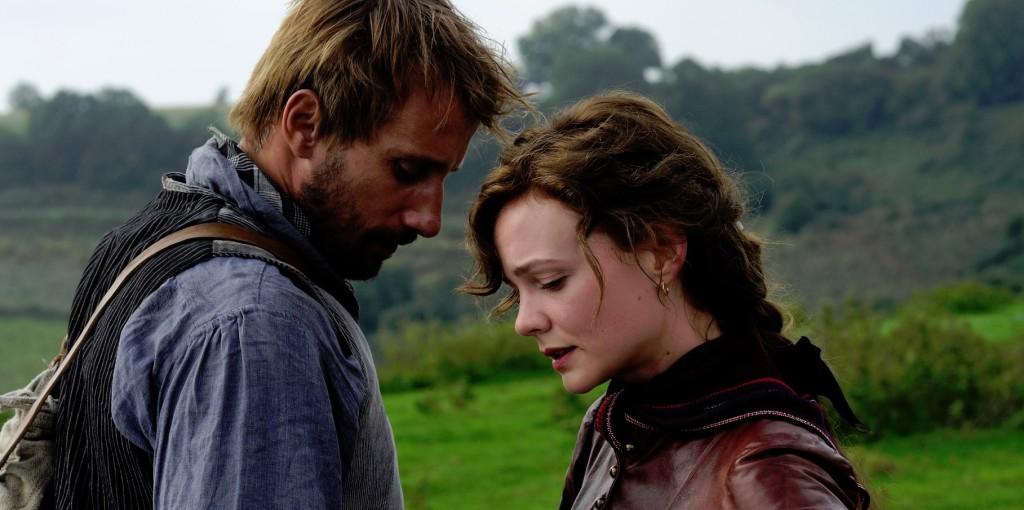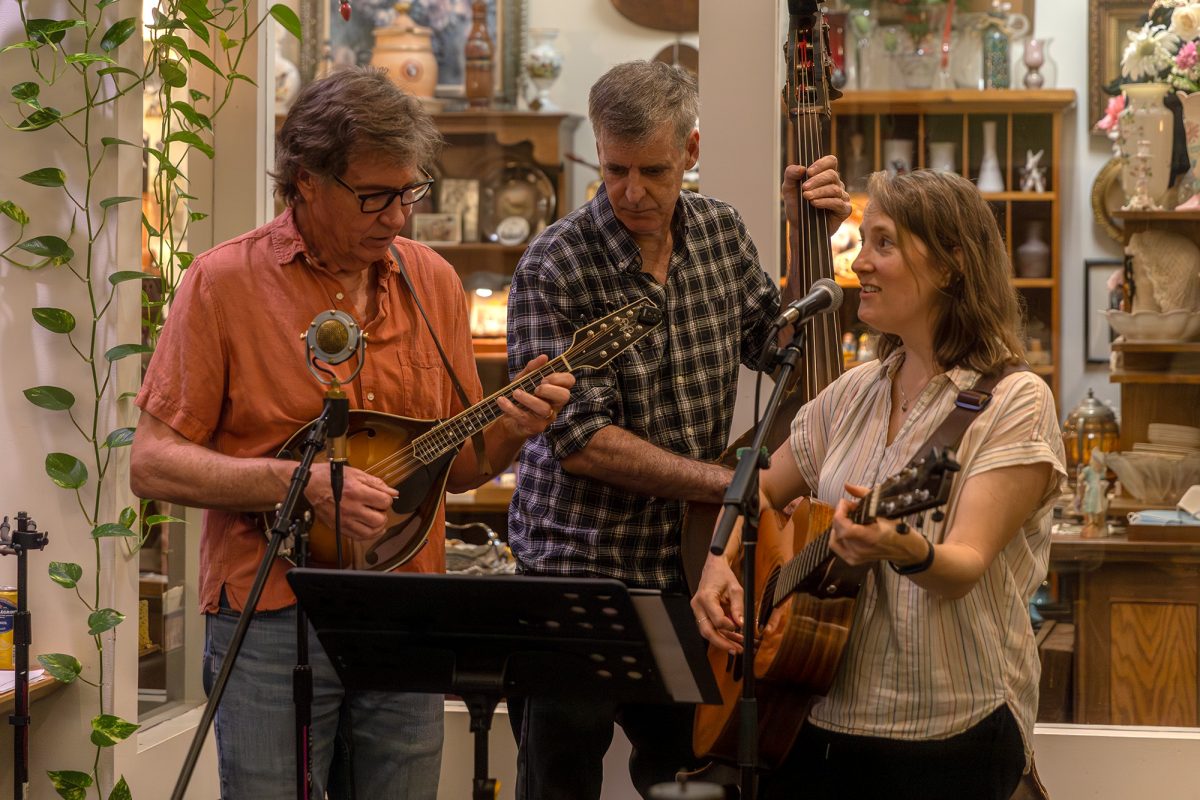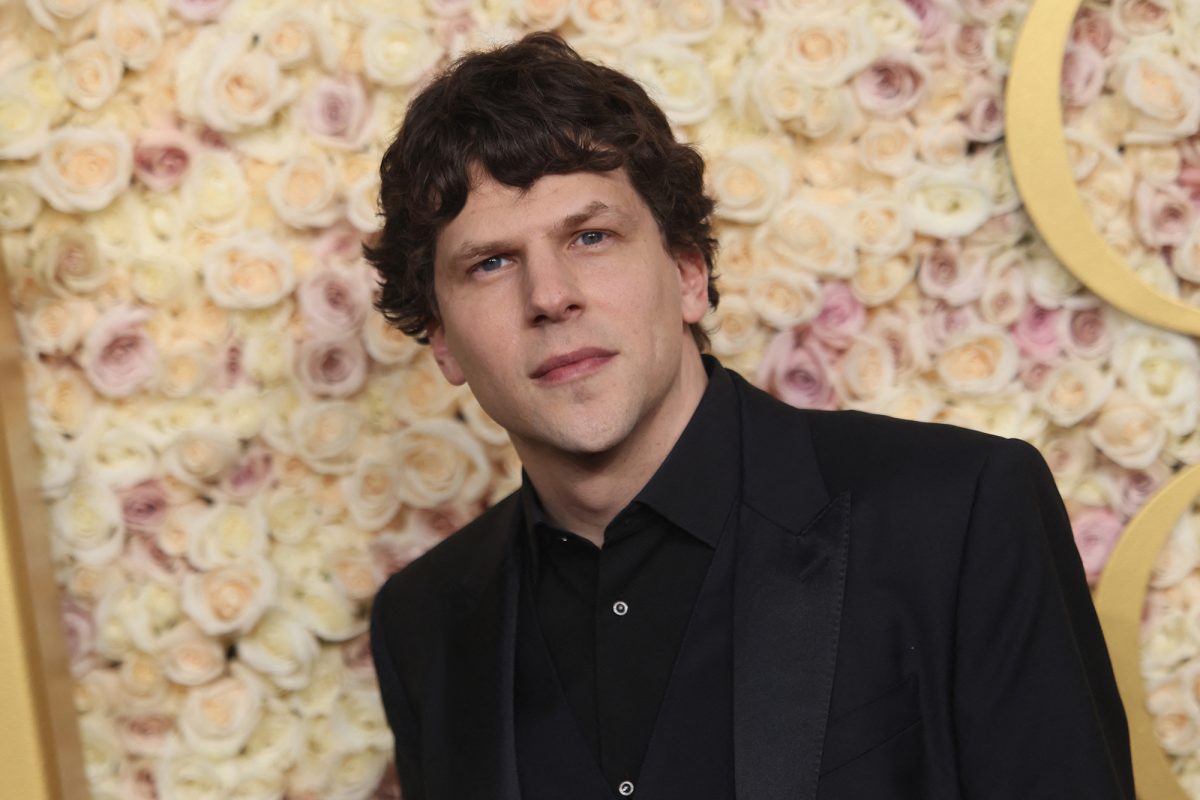A beautiful woman rides through the English countryside at full gallop, comfortably dressed in Jodhpur trousers and a striking red riding jacket. Approaching a narrow bridle path, she leans backward and lies flat across her horse’s back to avoid the low-hanging branches. She stares up at the sky as her horse slowly moves down the path, unaware that she has caught the eye of a passing grazier. So begins “Far from the Madding Crowd,” a lusciously romantic Victorian drama that initially sets the stage for a tried-and-true look into the nature of relationships, only to shatter expectations and breathe life into one of classic literature’s greatest heroines.
Based on Thomas Hardy’s 1874 novel of the same name and directed by Thomas Vinterberg, who is best known for directing the Academy Award-nominated drama-thriller “The Hunt,” the film stars actress Carey Mulligan as Bathsheba Everdene, a virginal beauty who spends most of her days working on her aunt’s farm. An unexpected inheritance from a late uncle results in Bathsheba traveling to the town of Weatherbury, where she finds herself fighting to be treated equally and struggling to deal with three potential suitors: sheep farmer Gabriel Oak (Matthias Schoenaerts), local landowner William Boldwood (Michael Sheen) and army sergeant Francis “Frank” Troy (Tom Sturridge).
In retelling this tale of overcoming obstacles and breaking out of the roles assigned by society, Vinterberg creates an atmosphere in which every scene is filled with enough splendor, beauty and excitement to keep viewers immersed from beginning to end. While the setup may sound like the archetypal platform for any unlikely couple-romance film, such as the 2012 adaptation of Matthew Quick’s debut novel “The Silver Linings Playbook,” “Far from the Madding Crowd” presents itself as the story of a young woman standing up for her rights in an age where men had the final say in everything.
Mulligan is undoubtedly the film’s most compelling element, adding depth to a character who could have been watered down into an Essex girl stereotype, which describes British women who are generally naive and overly promiscuous. Instead, Mulligan embellishes Bathsheba’s persistence in the face of adversity, while creating a believable character female viewers can identify with. Mulligan also succeeds in captivating the audience with her superb acting, a fact that is asserted when her character rejects Gabriel’s proposal of marriage and proclaims that she does not want to be a man’s property.
Mulligan’s chemistry with Schoenaerts, who does a magnificent job in portraying the rugged yet devoted Gabriel, keeps the main plot going in several key instances. One such example takes place near the midpoint of the film when Bathsheba impulsively fires him, only to later find herself forced to choose between relinquishing her pride or watching her flock of sheep die of bloated stomachs. Though fed up with each other at the beginning of the movie, both characters tentatively reconcile as they work together to restore the farm to its past glory.
Sheen’s portrayal of William does not fail to satisfy, giving a naturalistic performance filled with affection and longing for Bathsheba. His repressed nature is externalized in the stiffness of his movements and the hesitant yet pained facial expressions he employs. Where Sheen broods, Sturridge is loose, affable and extremely irresponsible. His Frank is an alternately pitiable and despicable army officer, who goes so far as to erotically thrust his sword at Bathsheba during a casual tryst.
Danish cinematographer Charlotte Bruus Christensen, known for working with Vinterberg on both “The Hunt” and his 2010 film “Submarino,” contributes to the film’s finesse by making it appear as if viewers are riding through the countryside and taking in its feverish green fields and towering seaside cliffs. From start to finish, the deliberate placement of each shot works flawlessly to tell this classic story.
The one flaw within the world of “Far from the Madding Crowd” is the strong lack of character development found in Fanny Robin (Juno Temple), a village girl who is engaged to Frank but finds herself alone and unmarried after going to the wrong church by mistake. She is, at first blush, a sheltered young woman who is wistfully in love with her fiance, but the absence of a backstory makes Fanny come across as a character who has zero personality outside of her fleeting interactions with Frank.
Brilliant and sumptuous, “Far from the Madding Crowd” is raw with emotion and does not hold back. Steering away from the supposed idea that romance is superficial, this film offers a new perspective on what it means to fall in love.




















